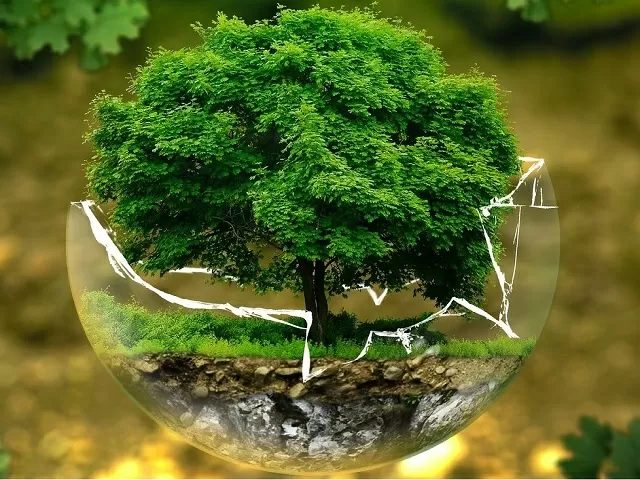World Environment Day is celebrated every year on June 5 to remind people about the importance of nature. The World Environment Day theme 2021 is 'Ecosystem Restoration'. World Environment Day 2021 will also mark the beginning of the United Nations Decade on Ecosystem Restoration (2021-2030). Pakistan will host World Environment Day 2021.
This article precisely describes major initiatives undertaken by the Government of India towards a greener and cleaner nation.
List of Important Government Schemes Launched in India in 2020
1- Namami Gange Programme
Launched in 2014, Namami Gange Programme is an Integrated Conservation Mission with a budget outlay of Rs. 20,000 crores.
The objectives of the Programme are the abatement of pollution and conservation and rejuvenation of the National River Ganga.
Key Achievements:
1- Collection of floating solid waste from the surface of ghats and rivers.
2- Biodiversity Conservation and Ganga Rejuvenation.
3- Creation of Sewerage treatment capacity.
4- Construction of toilets in Gram Panchayats of 5 Ganga Basin States.
5- Industrial Effluent Monitoring.
Around 147 projects under this programme have been completed. The programme is being implemented by the National Mission for Clean Ganga (NMCG) at the national level and State Program Management Groups (SPMGs) at the state level.
2- Green Skill Development Programme (GSDP)
Formally launched on May 15, 2018, Green Skill Development Programme (GSDP) aims at training over 5.5 lakh workers in environment and forest sectors pan India.
The programme will help in attaining Nationally Determined Contributions (NDCs), Sustainable Development Goals (SDGs), National Biodiversity Targets (NBTs), as well as Waste Management Rules (2016).
Key Achievements:
1- Skilled trainees successfully as Biodiversity Conservationists (Basic Course).
2- Skilled trainees successfully as Para-taxonomists (Advance Course).
In May 2018, the then Union Minister for Environment, Forest, and Climate Change, Harsh Vardhan, said that around 2.25 people will be employed through GSDP by 2019 and around five lakh will be employed by 2021.
The pilot project was launched in June 2017 to preserve and restore the environment and create a sustainable future.
3- Swachh Bharat Abhiyan
Launched on October 2, 2014, on the birth anniversary of Mahatma Gandhi, Swachh Bharat Abhiyan aims to eradicate open defecation and improve solid management.
The mission was split into two-- rural and urban. In rural areas, the mission was overseen by the Ministry of Drinking Water and Sanitation whereas, in urban areas, it was overseen by the Ministry of Housing and Urban Affairs.
Key Achievements:
1- 26,563 Swach Bharat Activities done.
2- 84,720 Swach Bharat Pledges taken.
3- 6,106 Swach Bharat Pakhwada Activities done.
4- Around 110 million toilets constructed between 2014 and 2019.
Phase I of the mission was completed in October 2019. Phase II of the mission will last until 2024-25.
4- Nagar Van Scheme
Launched on the occasion of World Environment Day 2020, the Nagar Van Scheme aims at developing 200 Urban Forests pan India in the coming five years.
It will be built either on the existing forest land or another vacant land in the cities across India offered by the local bodies.
Key Achievements:
1- The work for Vidarbha's first urban forest on Koradi Road in Nagpur has started.
2- Panaji to get an urban forest in Goa along the Miramar-Caranzalem beachfront.
3- Ranchi to get two urban forests.
Warje Urban Forest situated in Pune, Maharashtra is the role model for the scheme. The scheme is funded by the CAMPA (Compensatory Afforestation Fund Management and Planning Authority).
5- Atal Bhujal Yojana (ABHY)
Launched on December 25, 2019, on the 95th birth anniversary of former PM Atal Bihari Vajpayee, Atal Bhujal Yojana aims to improve groundwater management in 7 Indian states over a period of 5 years.
Under the Rs. 6,000 crore scheme, 78 districts, 193 blocks and 8350 gram panchayats have been included.
Key Achievement:
The scheme is implemented in various districts of seven priority states-- Gujarat, Haryana, Karnataka, Madhya Pradesh, Maharashtra, Rajasthan and Uttar Pradesh.
The scheme is being implemented by the Ministry of Jal Shakti (earlier known as Ministry of Water Resources, River Development and Ganga Rejuvenation) and is funded by GOI and the World Bank on a 50:50 basis.
6- Jal Jeevan Mission
Launched in August 2019, Jal Jeevan Mission envisages a supply of 55 litres of water per person per day to every rural household through Functional Household Tap Connections (FHTC) by 2024.
Rs 3,50,000 crore will be spent on 1592 stressed blocks in 256 districts. The fund sharing pattern between the Centre and states is 90:10 for Himalayan and North-Eastern States, 50:50 for other states, and 100% for Union Territories.
Key Achievements:
Local infrastructure for rainwater harvesting, groundwater recharge and management of household wastewater for reuse.
It is a community-based approach to water and includes extensive Information, Education and Communication as key components of the mission.
7- National Clean Air Programme
Launched in January 2019, aims to reduce air pollution by at least 20-30% in the next five years, with 2017 as its base year.
The mission aims at reducing the concentration of coarse (PM10) and fine particles (PM2.5) by at least 20% by 2024. However, NGT has directed MoEFCC to reduce the aforementioned timeline and to increase the target of reduction.
Key Achievements:
1- Implementation of the city-specific action plans.
2- Integrated Command and Control Centres (ICCCs) in smart cities.
3- Shift to CNG vehicles.
It is to be noted that the Right to Clean Air is a part of the Right to Life and failure to address air pollution is a denial of the Right to Life under Article 21.
| Do You Know? World Environment Day was first observed in 1974 in the United States. The theme of World Environment Day 1974 was 'Only One Earth'. |
World Environment Day 2021: Theme, History, Significance and Host Country
World Environment Day 2021: 27 Best Slogans to spread the awareness
